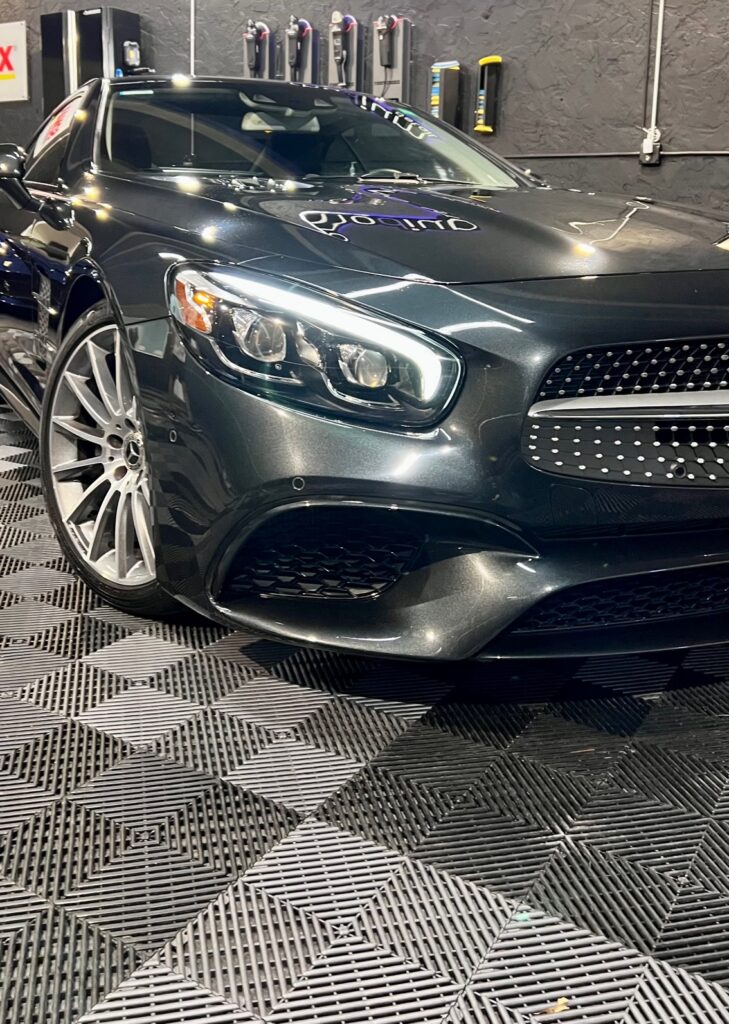Vehicle wraps have gained popularity as an effective way to transform the appearance of your vehicle while providing various benefits. A vehicle wrap involves covering the exterior surface of a vehicle with a specialized vinyl material, which can be customized with graphics, designs, colors, and branding elements.
One of the key advantages of vehicle wraps is their ability to serve as a mobile advertisement platform. Whether you have a business and want to promote your brand or simply want to express your personal style, a vehicle wrap can turn your car into a moving billboard. The eye-catching graphics and vibrant colors on the wrap attract attention on the road, effectively capturing the interest of potential customers or leaving a lasting impression.
Another benefit of vehicle wraps is their ability to protect the underlying paintwork. The vinyl material acts as a protective layer, shielding the vehicle’s original paint from minor scratches, UV rays, and other elements that can cause damage over time. This ensures that your vehicle maintains its resale value and looks in pristine condition even after the wrap is removed.
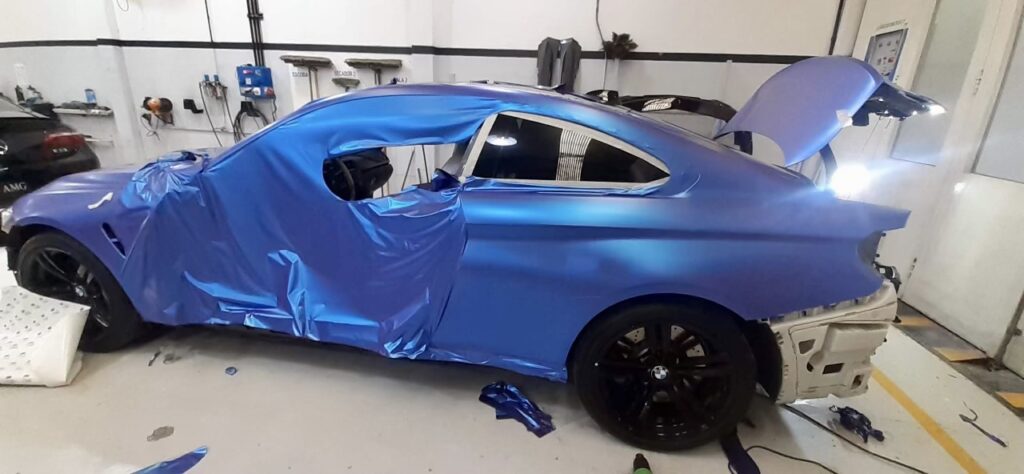
Is Vinyl Permanent?
In addition to advertising and protection, vehicle wrap also offer the advantage of versatility. Unlike a permanent paint job, wraps are not permanent and can be easily removed or changed when desired. This flexibility allows you to experiment with different designs or update your branding without the need for extensive and costly repainting. Whether you want a full wrap, a partial wrap, or even a custom design for specific panels, vehicle wrap services can cater to your preferences.
When it comes to vehicle wrap services, it’s crucial to work with experienced professionals who have the expertise and knowledge to deliver high-quality results. From design conceptualization to installation, skilled technicians ensure that the wrap is meticulously applied, with attention to detail and precision. This ensures a seamless finish that enhances the overall appearance of your vehicle.
Whether you’re looking to advertise your business, personalize your vehicle, or protect its paintwork, vehicle wrap services provide a versatile and effective solution. Explore the possibilities and transform your vehicle into a stunning masterpiece that stands out on the road while delivering your desired message or style.
Vinyl & PPF 2 Popular Options
Certainly! Vinyl and paint protection film (PPF) are two popular options for protecting and enhancing the appearance of vehicles. Here’s a breakdown of the key differences between the two:
Vinyl and PPF are made from different materials. Vinyl, also known as vehicle wrap or car wrap, is made from a durable vinyl film that can be applied to the exterior surface of the vehicle. It comes in a variety of colors, finishes, and textures, allowing for customization and creative designs. On the other hand, PPF, also called clear bra or paint protection film, is a transparent, self-healing film designed to protect the vehicle’s paint from chips, scratches, and other damage.
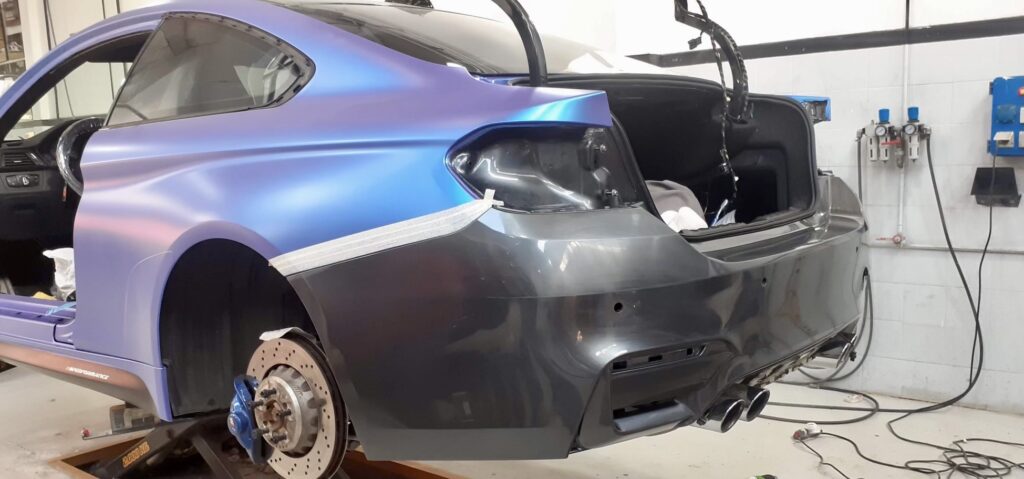
What wrap is best for Rock-chips?
Purpose: The main purpose of vinyl wrap is to change the appearance of a vehicle by providing a new color or finish. It is often used for advertising purposes, personalization, or to achieve a unique look. Vinyl wrap does not offer the same level of protection against physical damage as PPF. On the other hand, PPF is specifically designed to protect the vehicle’s paintwork from external factors that can cause chips, scratches, or fading. It acts as a sacrificial layer, absorbing the impact and preserving the original paint underneath.
Coverage: Vinyl wrap can cover the entire vehicle or specific sections, depending on the desired design. It can be a full wrap that completely changes the color and appearance of the vehicle, or a partial wrap that adds accents or graphics. PPF, on the other hand, is typically applied to high-impact areas that are prone to damage, such as the front bumper, hood, fenders, side mirrors, and door edges. The goal of PPF is to protect these vulnerable areas without significantly altering the vehicle’s appearance.
Wrap Maintenance Requirements
Maintenance: Both vinyl wrap and PPF require regular maintenance to keep them in optimal condition. Vinyl should be washed and cleaned with mild detergents to remove dirt and grime. It is also recommended to avoid abrasive cleaners and high-pressure washing, as they can damage the vinyl. PPF is easier to maintain, as it is transparent and does not require specific cleaning products. Regular washing and detailing can help keep the PPF film looking clear and free from debris.
Ultimately, the choice between vinyl and PPF depends on your specific needs and preferences. If you’re looking to change the appearance of your vehicle or use it as a promotional tool, vinyl is a great option. On the other hand, if you want to protect your vehicle’s paintwork from chips and scratches, PPF is the way to go. Consulting with AutoPro DFW can help you make an informed decision and ensure that the chosen option meets your expectations.
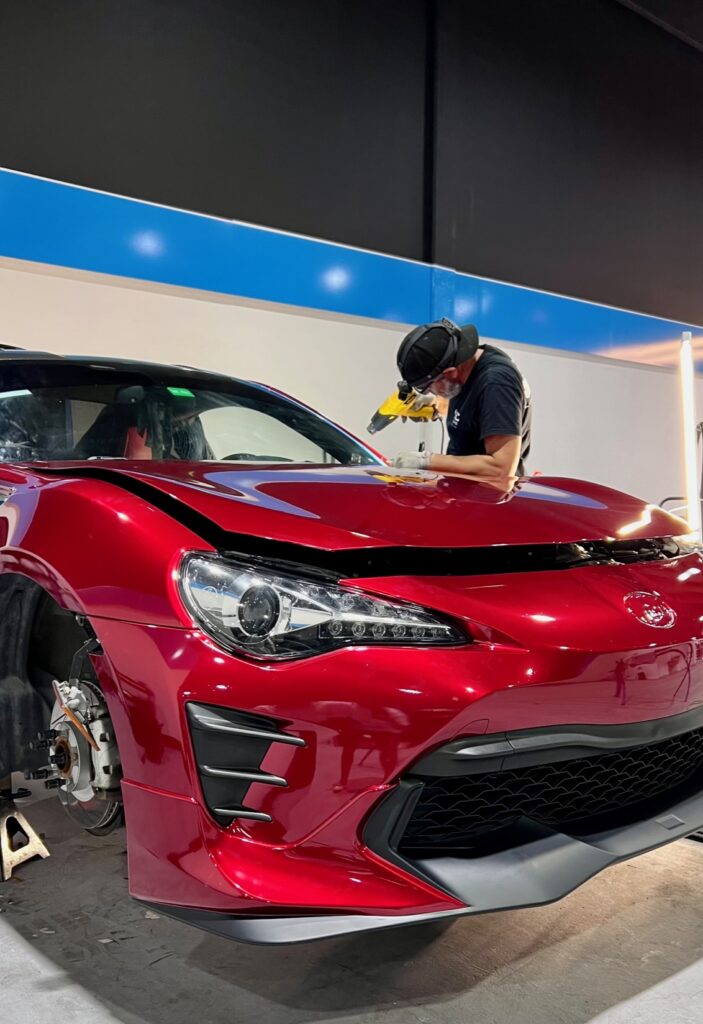
What is PPF Wrap?
Paint Protection Film (PPF) is a specialized clear film that is designed to protect the exterior surfaces of your vehicle from potential damage. PPF wrap is made of a durable and transparent thermoplastic urethane material that is applied to vulnerable areas of the car, such as the front bumper, hood, fenders, side mirrors, and door edges.
It acts as a barrier against various types of road hazards, including rock chips, scratches, insect stains, and other debris that can cause harm to the vehicle’s paint.
PPF offers several benefits for car owners. Firstly, it provides a layer of protection that helps to maintain the pristine condition of the vehicle’s paintwork. The film is self-healing, meaning that minor scratches and swirl marks can disappear over time with exposure to heat.
This feature ensures that your car stays looking fresh and blemish-free. Additionally, PPF offers excellent resistance against UV rays, preventing the paint from fading or discoloring due to prolonged sun exposure.
It also acts as a shield against environmental elements, such as road salt, bird droppings, and tree sap, keeping the vehicle’s paintwork intact and easier to clean. Overall, PPF is a reliable solution for preserving the original finish of your vehicle and protecting its resale value.
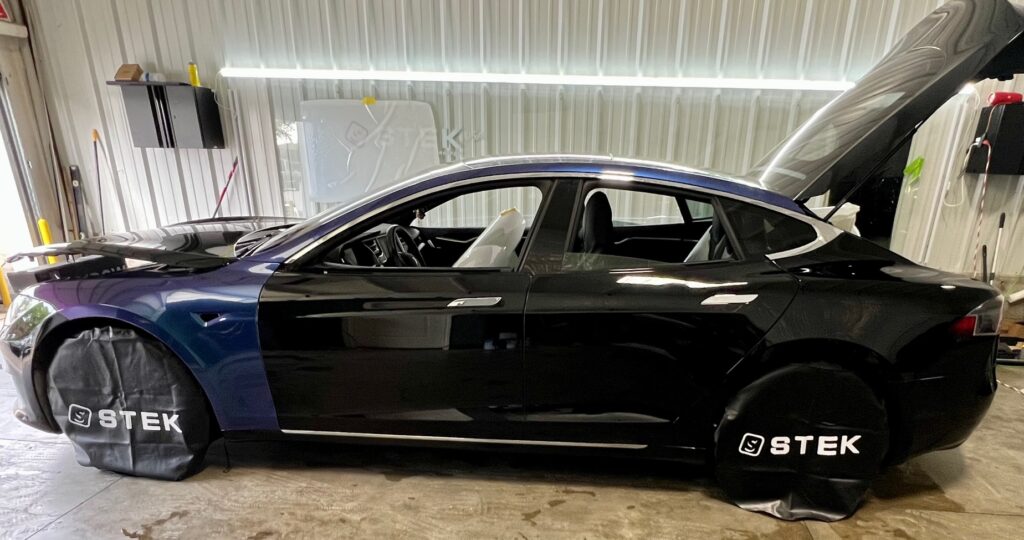
Beyond Protection: Exploring the Color Changing Potential of PPF Wraps
When it comes to adding protection against rock chips and color change, Paint Protection Film (PPF) offers superior benefits compared to vinyl. PPF is specifically designed to provide a high level of defense against road debris, including rocks, gravel, and other objects that can cause unsightly and costly damage to your vehicle’s paint.
The thick and durable nature of PPF makes it highly effective in absorbing the impact of these hazards, preventing them from reaching the underlying paint surface. This means that PPF acts as a reliable shield, significantly reducing the risk of rock chips and scratches that can mar the appearance of your vehicle.
In addition to its protective qualities, PPF also offers color change options. While there is a limit to the range of colors available in PPF compared to vinyl, PPF can still provide a transformative effect for your vehicle’s appearance.
PPF color change options allow you to refresh the look of your car, giving it a new and personalized style while simultaneously providing the added benefit of protection. This makes PPF a versatile solution that combines aesthetics and defense in one package.
It’s important to note that while PPF offers superior protection and color change options, it does come with a higher price tag compared to vinyl wraps. The cost of PPF reflects the advanced technology, durability, and performance it offers.
However, it’s essential to consider the long-term value and potential savings associated with protecting your vehicle’s paint from rock chips and maintaining its overall appearance. Ultimately, the decision between PPF and vinyl wraps should be based on your specific needs, budget, and desired level of protection and customization.
Check our Work
Can I Ceramic Coat Vinyl or PPF?
Vinyl wraps, while versatile and visually appealing, lack inherent UV protection, which can lead to durability issues, particularly in high-temperature environments like Texas, California, or Florida. Prolonged exposure to intense sunlight and UV rays can cause the vinyl to degrade, fade, and peel over time.
However, by applying a ceramic coating to your vinyl wrap, you can significantly enhance its longevity and resistance to UV damage. Ceramic coatings create a protective barrier that shields the vinyl from harmful UV rays, preventing premature deterioration and color fading.
This extra layer of protection helps preserve the original appearance and integrity of the vinyl wrap, ensuring it lasts longer and maintains its vibrant look.
At AutoPro DFW, we understand the importance of protecting your vinyl investment in regions with challenging climates. That’s why we offer a dedicated ceramic coating specifically formulated for vinyl wraps.
Our specialized coating is designed to provide maximum UV protection and durability without altering the original look of the vinyl. It offers a transparent and glossy finish that enhances the vinyl’s appearance while providing an additional shield against UV damage, dirt, and contaminants.
By opting for our vinyl-specific ceramic coating, you can enjoy an extended lifespan for your vinyl wrap and maintain its pristine condition, even in harsh weather conditions.
Choosing to ceramic coat your vinyl is highly recommended, as it offers an effective solution to counter the UV vulnerability of vinyl wraps.
Our dedicated coating for vinyl at AutoPro DFW ensures optimal protection without compromising the original aesthetics of your vinyl. Experience the benefits of enhanced longevity and UV resistance for your vinyl wrap with our specialized ceramic coating service.
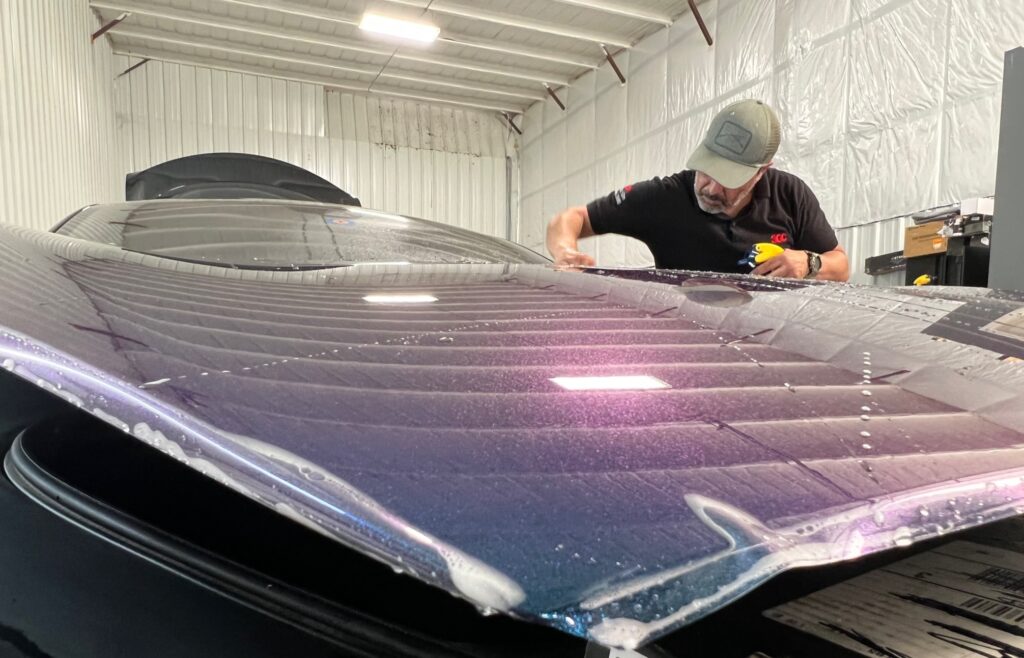
Ceramic coating for Paint Protection Film (PPF) is highly recommended to enhance its performance and longevity. While PPF itself provides excellent protection against rock chips, scratches, and other hazards, the hydrophobic properties of PPF tend to diminish over time, typically lasting around six months.
To maintain the hydrophobicity and ease of maintenance of your PPF, applying an aftermarket ceramic coating on top of the film is highly beneficial. The ceramic coating forms a protective layer that repels water, dirt, and other contaminants, making it easier to clean and maintain the PPF.
By adding a ceramic coating to your PPF, you can extend its hydrophobic features well beyond the initial lifespan of the film. The coating creates a slick and smooth surface, preventing water spots, staining, and adhesion of environmental pollutants.
Furthermore, the ceramic coating provides additional protection against UV rays, oxidation, and chemical damage, helping to preserve the appearance and integrity of the PPF. It acts as a sacrificial layer, taking the brunt of the environmental factors, while the PPF beneath remains safeguarded.
To ensure the long-term performance and easy maintenance of your PPF, applying an aftermarket ceramic coating is a wise choice. At AutoPro DFW, we offer professional ceramic coating services specifically designed for PPF.
Our high-quality coatings provide enhanced hydrophobicity, durability, and protection for your PPF, allowing you to enjoy the benefits of easier maintenance and extended lifespan. Experience the advantages of a ceramic-coated PPF and keep your vehicle’s paint protected and looking its best for years to come.






